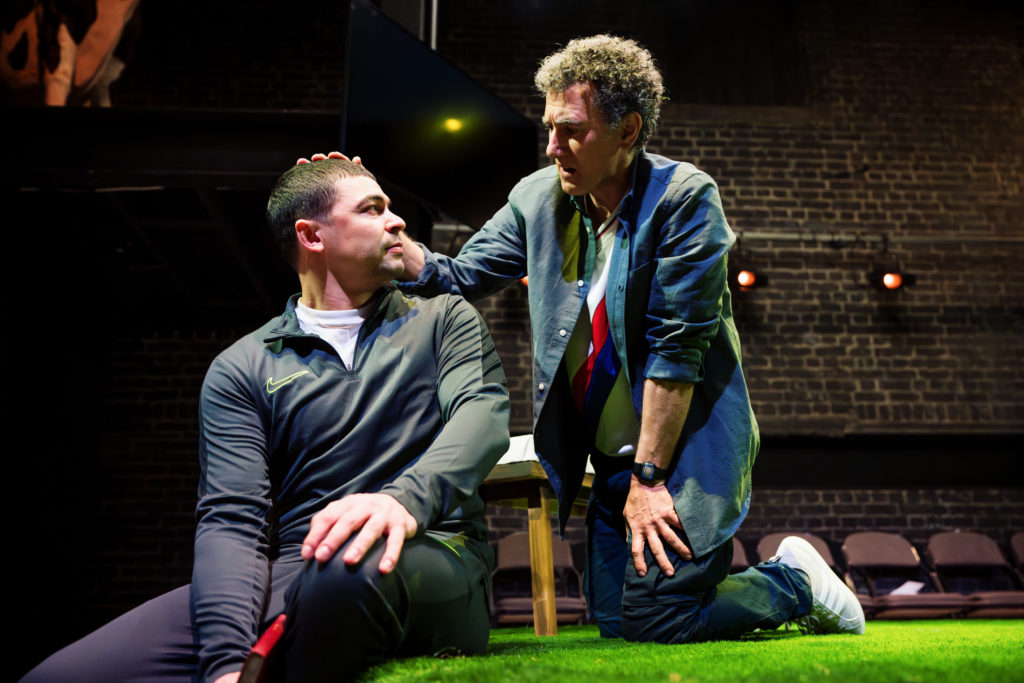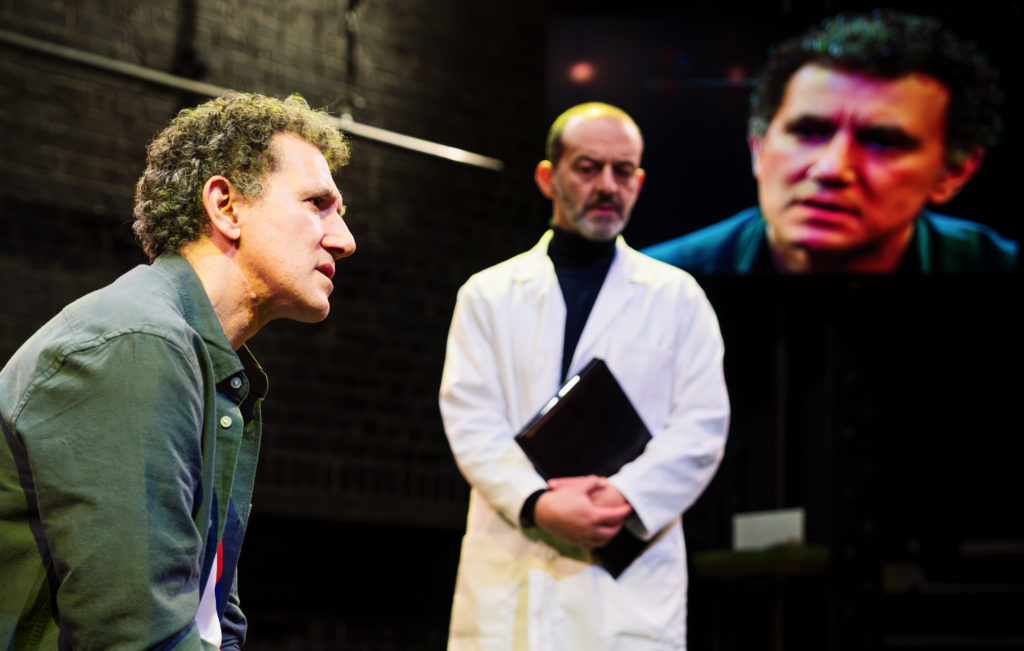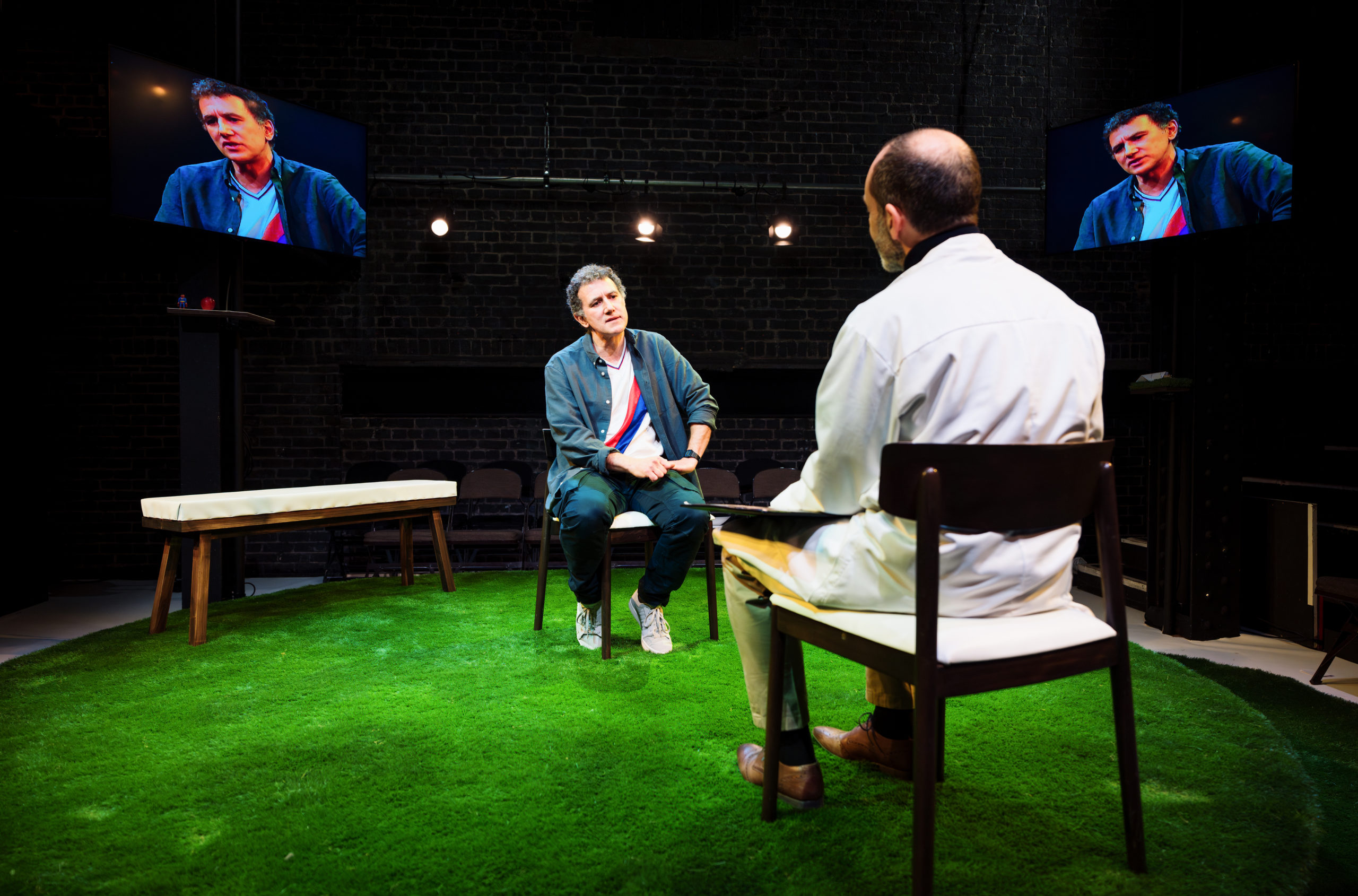When You Pass Over My Tomb – Arcola Theatre, London
Sergio Blanco’s latest play When You Pass Over My Tomb is a wild ride through London, Paris, Switzerland, taboo topics and erudite allusions.
Content warning: mentions of assisted suicide and necrophilia.

When You Pass Over My Tomb
My beloved
Like the wind
When you pass over my tomb
From within my grave
Desirous of you
I’ll tear my shroud
Persian poet Hafiz, as quoted onscreen (but I haven’t been able to find the source online)
You know, I didn’t expect a play with those sorts of content warnings to be my cup of tea. But then again I didn’t know the work of Sergio Blanco until now. Necrophilia and assisted suicide. It’s sort of what this play is about. Only that seems to be a device, a vehicle for Blanco to pick apart theatre itself and this play in particular.
Despite my ignorance, Blanco is one of the most widely-performed playwrights writing in Spanish (this work is translated – and directed – by Daniel Goldman). Blanco’s work is known for being humorous, self-referential, and clever. If When You Pass Over My Tomb is anything to go by, the references come a mile a minute and it’s your job to figure a lot of them out. Well, some are more obvious than others. Mary Shelley’s Frankenstein is a key reference, and parallels Blanco’s ‘gift’ of life to another wretched creature, our necrophiliac Khaled, sentenced to ten years in Bethlem Hospital. His story attracts the attention of a fictionalised version of Blanco himself, who decides, rather suddenly and inexplicably, to seek assisted suicide in Switzerland and donate his cadaver to none other than Khaled.
Shocking, certainly. A plot chosen by Blanco for its very unpalatable-ness, the revulsion audiences may feel at the thought of it? I turn therefore to a throwaway reference to Bertolt Brecht within the text. Because, you see, there’s a whole genre of Brechtian theatre which echoes the play before us. Particularly in the utilisation of the set and breaking of the fourth wall to keep the audience destabilised. Verfremdungseffekt, the Germans call it. In Brechtian theatre you don’t allow the audience to forget they’re watching a play. Blanco seems to be a master at this: the actors dipping in and out of characters and posthumous versions of themselves is nothing if not deliberately alienating and metatheatrical.

Theatrical Marmite?
Having read my summary so far, will it surprise you to learn it’s probably among the best things I’ve seen at the Arcola Theatre? I’m sure it will be one of the most memorable. You feel rather clever just being in the audience, and a love of interesting and challenging theatre is enough to overcome any squeamishness potential audiences might feel at the subject matter. I’ve never seen so many people (myself included) go and purchase a playtext in the interval. I just had to verify for myself that someone had actually written this as performed! Particularly as the actors are so personally entwined in the text. And yes, I can confirm it’s all there.
Frequent Blanco collaborator Daniel Goldman here directs as well as having translated the text. I assume therefore that this is close to the playwright’s own vision for the play: all charm and jovial tone undercut with bizarre nonsequitors. Verfremdungseffekt, remember? The three actors put in excellent performances. Allel Nedjari is the charming Blanco stand-in, with boundless energy to keep us engaged throughout an introduction, three acts and an epigraph. Danny Scheinmann plays the reassuring Swiss doctor, something of a straight man for the fourth wall breaks. And Charlie MacGechan has great range as Khaled, a character perhaps not as sympathetic as Frankenstein’s monster, in the end.
This play is not for everyone. I dare say it’s theatrical marmite. But I’m very glad to have seen it and urge lovers of challenging theatre to consider doing the same.
Salterton Arts Review’s rating: 4/5
When You Pass Over My Tomb on until 2 March 2024
Trending
If you see this after your page is loaded completely, leafletJS files are missing.

